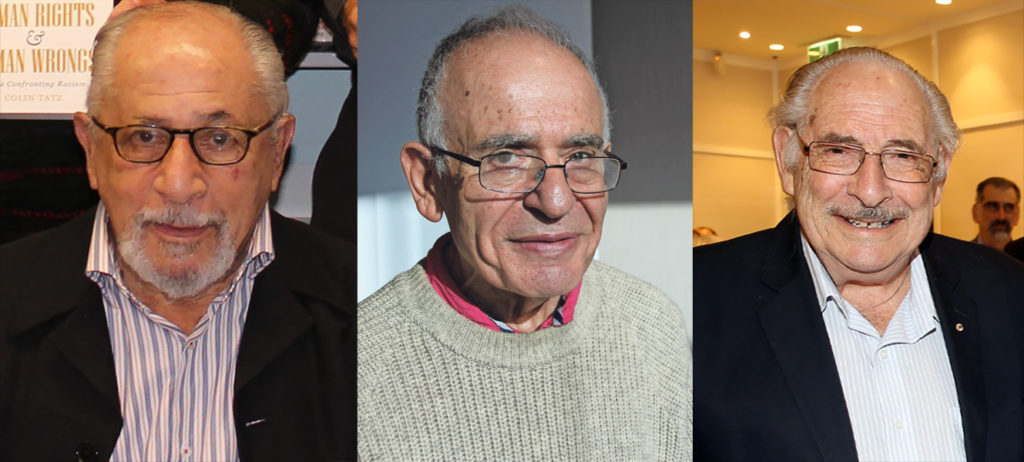Australia/Israel Review
The Last Word: Precious legacies
Feb 3, 2020 | Jeremy Jones

“Was this arson? Were Jews involved?”
“No, the police haven’t said it was arson. And there is no Jewish connection as far as I know”
“Then why did you call a fire in a factory ‘Jewish lightning’?”
“It is common usage.”
“Well, stop saying it and it won’t be!”
The caller to the top-rating radio programme was Rabbi Brian Fox, and, after this exchange, the popular host not only stopped using racist language but subsequently became involved in fighting against demeaning stereotyping.
Rabbi Fox was one of three unique Sydney Jewish figures who passed away in late 2019 and early 2020, the others being Professor Colin Tatz and Professor Graham de Vahl Davis.
I had the opportunity to be able to work with and learn from each of them.
They were not afraid of expressing unpopular or minority opinions and were each known to have marched to the beat of their own drums.
My last interaction with Professor Tatz was when I was privileged to be invited to the launch of one of his many essential books, Black Pearls, which catalogued the lives of many exceptional Indigenous sportswomen and men.
The book is jam-packed with original research, brings to light aspects of Australian history discussed too rarely, demonstrates great attention to detail and, like the author, exhibits both passion and compassion.
Professor Tatz was not just a scholar but an advocate, a thinker and an achiever.
As one colleague put it, he was anti-racist when it was not popular.
He also liked to challenge complacency and force anyone who would listen to rethink their assumptions, be it with his establishment of a Centre for Comparative Genocide Studies, or the challenges he offered to received wisdom regarding Australian history.
Australia was enriched by both his many contributions to public debate and his commitment to the education of educators.
Professor de Vahl Davis had a background in Australian Jewish leadership and a passion for mentoring and guiding colleagues, as well as students and emerging leaders.
He was an outstanding media performer, armed with expansive knowledge, a quick wit and an almost pitch-perfect voice for radio.
Although he didn’t seek the spotlight, he had a brief moment as an international superstar in 1987 as a direct result of what can only be described as sheer chutzpah.
I recall being in New York and seeing his photo in the international media.
As the label on the Getty image sent around the world put it, “Russian Foreign Minister Mr. Shevardnadze was confronted by Mr. Graham de Vahl Davis (in Dark Sunglasses and a jew) [sic] who had stood in a line of Diplomats at Fairbairn Airforce base in Canberra and had shown his drivers license to get through security.”
The “confrontation” consisted of the “jew” asking why the leadership of the Soviet Union was denying its Jewish population options for either living as Jews or else being allowed to leave to go to places they could enjoy basic human rights.
It would not have been in the Foreign Minister’s interest to try to defend his position given that Professor de Vahl Davis was, amongst other things, a fearsome debater who knew he had right on his side.
My interactions with Rabbi Fox were primarily in the field of interfaith work, where it is safe to say he was a person who always made an impression.
He was boisterous and seemed to genuinely like just about everyone he met.
At times he was like a fish out of water in the hurly-burly of internal Jewish community machinations, but didn’t seem to allow individual defeats or setbacks to hold him back for long.
The dialogue with which I opened this piece was an example of his willingness to act impulsively but effectively, to challenge and change views through a combination of drive and good humour.
Each of these unique individuals bequeathed, through their lifetimes of activity, notable legacies to the Jewish world and to Australia.
Tags: Australia, Australian Jewry






